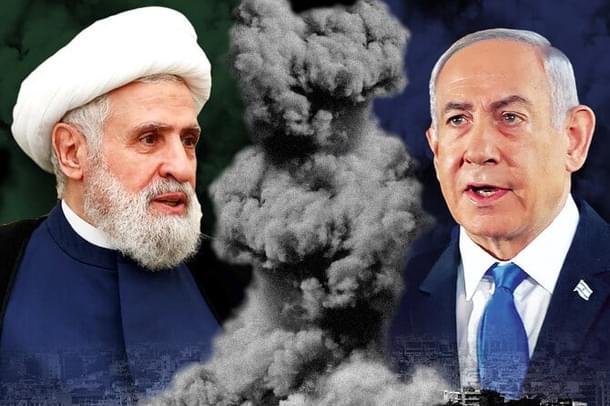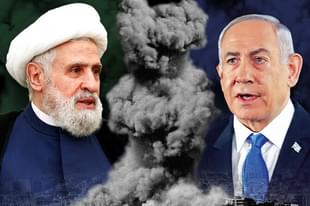News Brief
Israel-Hezbollah Ceasefire: US-Brokered Deal Brings Hope For Peace After 13-Month Conflict— Here’s All About It
Vansh Gupta
Nov 27, 2024, 01:21 PM | Updated 01:21 PM IST
Save & read from anywhere!
Bookmark stories for easy access on any device or the Swarajya app.


The 13-month-long hostilities between Israel and the Lebanon-based Hezbollah reached a critical turning point on Wednesday (27 November) as both sides agreed to a ceasefire brokered by the United States. The deal, announced by US President Joe Biden, aims to bring a "permanent cessation of hostilities" and came into effect at 4 am local time Wednesday (7:30 am IST).
In a joint statement by President Biden and French President Emmanuel Macron, the leaders emphasised that the ceasefire agreement would "restore lasting calm" and allow residents on both sides of the Blue Line to return home safely.
Key Provisions of the Ceasefire Agreement
Under the agreement, Hezbollah is required to retreat approximately 40 kilometres from the Israel-Lebanon border within 60 days. Simultaneously, the Israeli military will withdraw entirely from Lebanese territory. This mutual retreat is expected to create a buffer zone in southern Lebanon, which will be overseen by the Lebanese Armed Forces (LAF).
As part of the deal, Lebanon will deploy 5,000 troops in the southern region to ensure stability and prevent the resurgence of Hezbollah's military infrastructure. The United Nations peacekeeping forces, alongside the Lebanese army and a multinational committee, will monitor the area and ensure compliance.
According to US officials, the LAF will oversee the dismantling and removal of Hezbollah's weaponry in the buffer zone. This measure seeks to eliminate the group's ability to rebuild its military capabilities near the border, a point of contention in previous ceasefire violations.
Reactions from Key Stakeholders
Israeli Prime Minister Benjamin Netanyahu welcomed the US-brokered agreement, with his office stating that Israel "appreciates the US contribution to the process." However, Netanyahu emphasised that Israel retains "full freedom of military action" to address any threats to its security.
Lebanon’s caretaker Prime Minister Najib Mikati hailed the agreement as a significant step toward regional stability. Hezbollah, while agreeing to the terms, cautioned against compromising Lebanon’s sovereignty. "Any violation of sovereignty is refused," stated Mahmoud Qamati, deputy chair of Hezbollah’s political council, in an interview with Al Jazeera.
Historical Context and Past Challenges
This ceasefire builds upon the framework established by United Nations Security Council Resolution 1701, which ended the 2006 war between Israel and Hezbollah.
Resolution 1701 mandates that the area south of the Litani River in Lebanon remains weapon-free, guarded solely by the Lebanese state army and UN peacekeeping forces.
However, both sides have accused each other of violating the resolution in the past. Israel has alleged that Hezbollah was allowed to fortify its infrastructure in the region, while Lebanon has criticized Israeli military flyovers as breaches of sovereignty.
Global Reactions
The ceasefire has been widely welcomed by world leaders. President Biden praised the agreement, stating, "It reminds us that peace is possible." UK Prime Minister Keir Starmer called the deal "long overdue" and expressed hope for relief for civilians in Lebanon and northern Israel. French President Emmanuel Macron also lauded the agreement as a step toward peace.
While challenges to maintaining the ceasefire remain, this development offers a glimmer of hope for a region long plagued by conflict. The coming weeks will determine whether this agreement can translate into enduring peace.
Vansh Gupta is an Editorial Associate at Swarajya.




